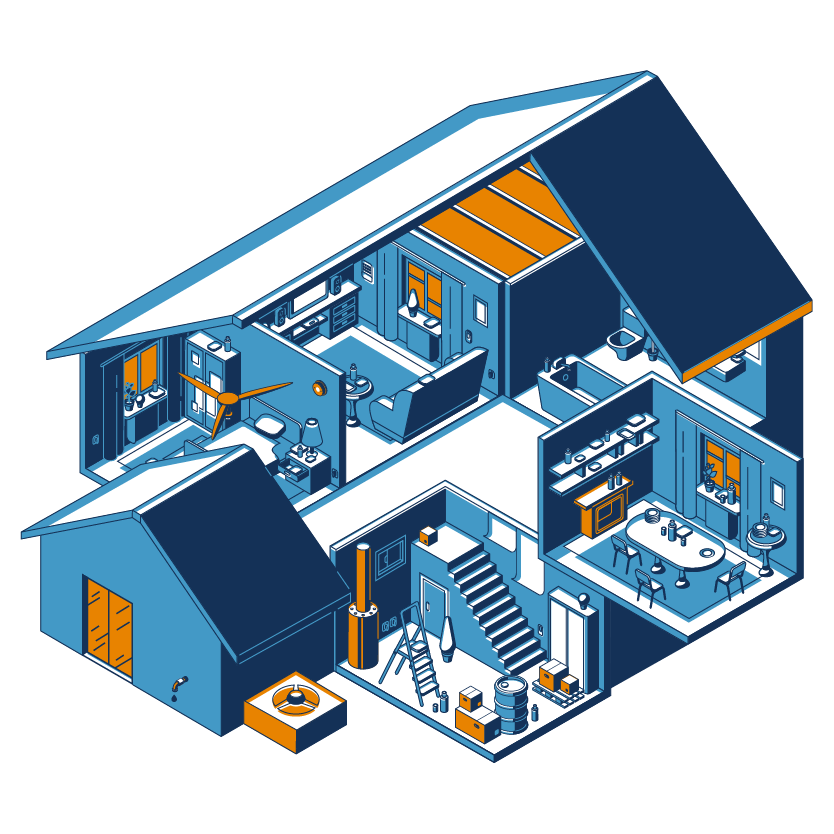If you’re considering buying a home but don’t know how long you will want to live in the area or you have been in a home for a short time and are already considering selling, you may be wondering about the minimum amount of time experts recommend you own a home.
As a general rule, many Realtors® and mortgage loan experts say you should own a home for at least five years so that you build enough equity to cover the cost of selling your current home and obtaining financing for your new home. While this rule may work for many people, it can vary between situations. Here’s a closer look into a few factors that help determine how long you should live in your home before selling.
Costs of buying a home
When you buy a home, you need to budget for a down payment and you may be responsible for a variety of closing costs, including loan origination charges, fees for services such as an appraisal, title service, closing fee, credit report, flood certificate, and more. Required mortgage payment amounts vary by mortgage product. Generally, homeowners like to put more down on the new home than they did on their previous home. However, this could change based on interest rates and monthly payment amounts that best fit your monthly budget.
In some cases, homebuyers receive credits from the seller. Depending on whether you paid closing costs yourself or if you received credits, you may want to factor in this cost when deciding if it makes financial sense to sell your home yet.
Building equity
Another important factor to consider when deciding when it makes sense to sell your home is how much equity you have built. While your mortgage payments are comprised of both principal and interest, the first several payments are comprised of mostly interest. This means it can take years before your payments start applying toward your loan’s principal balance in significant amounts and you begin building substantial equity.
This factor will be more important to some compared to others when deciding when to sell their home. If you have a shorter loan term, such as a conventional 15-year mortgage, you will begin making significant payments toward principal much faster than someone who has a longer loan term, such as a conventional 30-year mortgage. Another strategy that can help you pay less interest and begin building equity faster is prepaying your mortgage, which simply means to pay more than your monthly payment, either by making a large lump sum payment, or by making a few extra payments throughout the year.
Market conditions
The real estate market is constantly in flux. When there is an abundance of homes for sale compared to number of buyers, we’re in a buyer’s market. When there are few homes for sale compared to the number of buyers – which we witnessed this past year – we’re in a seller’s market. Since market conditions can impact the value of your home, it’s an important factor to consider when deciding when to sell your home.
For example, even if you bought a home only a few years ago and you paid closing costs and have been mostly paying interest on your loan, the value of your home may have significantly increased in a strong seller’s market, making it a reasonable time to sell your home. In contrast, you may have owned your home for many years and have even built significant equity, but if you’re currently in a buyer’s market, it may make sense to wait to sell until the market conditions are more in your favor.
The cost of selling
An important expense to consider is the cost of selling a home. As the seller, you will likely be responsible for paying Realtor® fees – which is a percentage of your home sale price – title fees, inspection fees, a home warranty and more. Before you make this commitment, be sure to include these costs in your final calculation of how much you’ll be left with after the sale.
While the general rule of waiting five years before selling a home may hold true for many homeowners, it’s important to take a close look into all these factors individually to determine what makes most sense for your situation.








 Equal Housing Lender. SBA Preferred Lender. NMLS #440379
Equal Housing Lender. SBA Preferred Lender. NMLS #440379